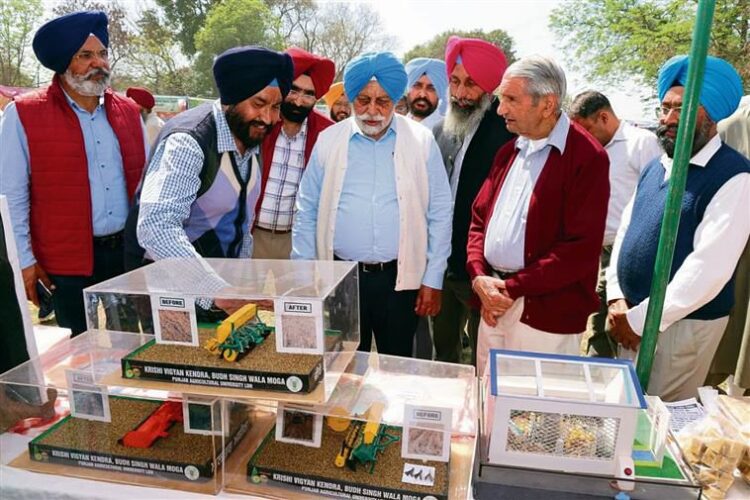Agribusiness and goods are the main attraction of the Faridkot Kisan Mela
Today, at the Regional Research Station in Faridkot, the Punjab Agricultural University (PAU) hosted a one-day kisan mela with the theme of strengthening family relations and promoting economic empowerment.

The mela’s “Kheti Naal Saahaaik Dhanda, Parivaar Sukhi Munafa Changa” theme encouraged the fusion of agribusiness and agriculture. The agro-industrial exhibition, field demonstrations, technical question-and-answer sessions, availability of high-quality and improved seed, sale of planting materials and bio-fertilizers, accessibility to farm literature, lined-up homemade processed products, and handwoven clothing all drew scores of farmers and their families to the mela.
The main visitor for the event was Dr. Gurdev Singh Khush, the recipient of the World Food Prize, who is renowned for having developed 300 different types of rice and for his enormous contributions to agriculture.
Dr. Khush, who is currently an adjunct professor emeritus at the University of California, USA, expressed concern about the difficult problem of the water crisis and promoted crop diversification by growing non-food crops like sugarcane, pulses, sarson, etc. and implementing kitchen gardens for nutritional security. In addition, he asked the farmers to use less pesticide and to stay in touch with PAU via agricultural publications and social media.
Amanpreet Singh Brar, a member of the PAU Board of Management and the honoree, emphasized the importance of fostering agricultural education, navigating the complexity of modern agriculture, and providing jobs for the rural populace. Additionally, he urged the Central Government to permit the export of fruits and vegetables across the borders of Afghanistan and Pakistan.
During his presidential address, Dr. Satbir Singh Gosal, Vice-Chancellor of PAU, stated that farmers needed to diversify their fields by growing other crops and taking up side jobs to ensure agricultural and financial sustainability because the traditional wheat-paddy cropping pattern has made the water, soil, and air crises worse and reduced farm income.
The evolution of new crop varieties, such as Pusa Basmati 1847 of basmati, J 1008 of fodder maize, and PCB 167 of bajra; Punjab China 1 of proso millet, Punjab Mithaas of brinjal, and Punjab Amrit of muskmelon; millet-based value added products; and farm machinery, such as remote-based Paddy Transplanter and UAV-based drone for spraying, were among the significant developments highlighted by Dr. GS Mangat, Additional Director of Research, while highlighting the research achievements.
DIVERSIFICATION IS REQUIRED: SKILL
The main visitor for the event was Dr. Gurdev Singh Khush, the recipient of the World Food Prize, who is renowned for having developed 300 different types of rice and for his enormous contributions to agriculture. Dr. Khush, who is now an Emeritus Adjunct Professor at the University of California, US, voiced worry about the difficult problem of the water shortage and pushed for agricultural diversification by growing crops like sugarcane, legumes, and sarson as well as adopting kitchen gardens for nutritional security.







